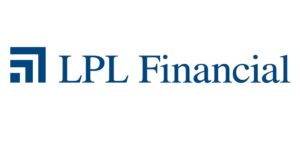 Happy Data Privacy Day
Happy Data Privacy Day
The January 28 event promotes best practices for protecting your data. Every January 28, at least 50 countries recognize Data Privacy Day, an event designed to raise awareness and promote best practices for protecting personal data. While the day falls but once a year, it’s important to embrace its recommendations and apply them daily whenever you are online. Below is a list of the most important steps you can take to prevent cyber criminals from stealing your personal information.
Secure your Wi-Fi
Unprotected networks are vulnerable to cyber attacks and data theft. When setting up your network — home or business — make sure that it’s password protected. Most routers are preset with a password; if so, change it to a code that is unique and not used by your online accounts. Also, most routers today have encryption capabilities (WPA2 is one of the most effective). Make sure that yours is turned on, as many are turned off by default. You should also consider using a virtual private network (VPN), which protects your Wi-Fi connections from would-be cyber thieves.
Use a disposable credit card
When making an online purchase, opt for a virtual credit card number, if available from your bank. AMEX, for instance, offers Amex Express Checkout, which allows cardholders to make purchases on participating merchant sites without sharing their actual card numbers. Amex instead provides the merchant with a virtual card number that is disposable and unlinked to the cardholder’s real card.
Visit merchants you trust
When shopping online, visit reputable merchants and those with whom you’ve established an account history. If it’s the first time working with a particular merchant — especially one that is not well known — be sure to verify that their website address begins with “https:,” which provides additional security between your web browser and the merchant.
Protect your passwords
Create passwords that are complex and unique (that is, that are not shared across multiple accounts), changing them periodically. There are secure password managers that can help in the process; for instance, Apple’s Safari browser offers to create incredibly complex passwords for each new site that your visit, saving them across your devices to ease your online browsing. Additionally, consider using two-factor authentication when it is available, which adds a layer of security to your connections. Finally, never provide your account numbers in an email, especially those with hyperlinks. The links are often phishing attempts, which direct you to a fraudulent site designed to elicit your personal information.
Monitor your credit card and bank statements
Check your bank statements each month, looking out for charges and debits that you do not recognize. Additionally, check your credit report periodically, making sure that there are no errors, while using it as a tool to make sure that you’re paying your bills on time and staying within your established credit limits. Such actions will help increase your credit score. NOTE: You are entitled to a free copy of your credit report annually from the three major credit reporting companies: Experian, Equifax, and TransUnion. By taking these basic preventive steps, you can help secure your personal information and protect it from cyber thieves.
This material is for general information only and is not intended to provide specific advice or recommendations for any individual. There is no assurance that the views or strategies discussed are suitable for all investors or will yield positive outcomes. Investing involves risks including possible loss of principal.
This material was prepared by LPL Financial.
Securities and advisory services offered through LPL Financial (LPL), a registered investment advisor and broker-dealer (member FINRA/SIPC). Insurance products are offered through LPL or its licensed affiliates. To the extent you are receiving investment advice from a separately registered independent investment advisor that is not an LPL Financial affiliate, please note LPL Financial makes no representation with respect to such entity.
| Not Bank/Credit Union Guaranteed |
Not Bank/Credit Union Deposits or Obligations |
May Lose Value |
|
Not Insured by FDIC/NCUA or Any Other Government Agency |
||

Tracking #: 1-05093426
